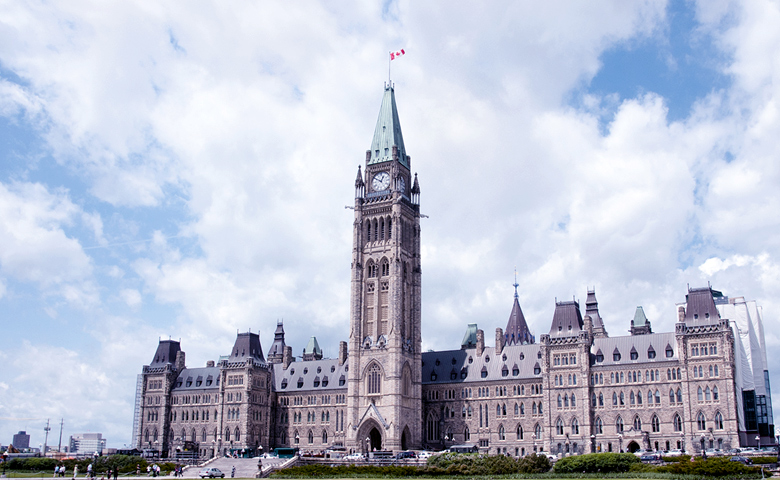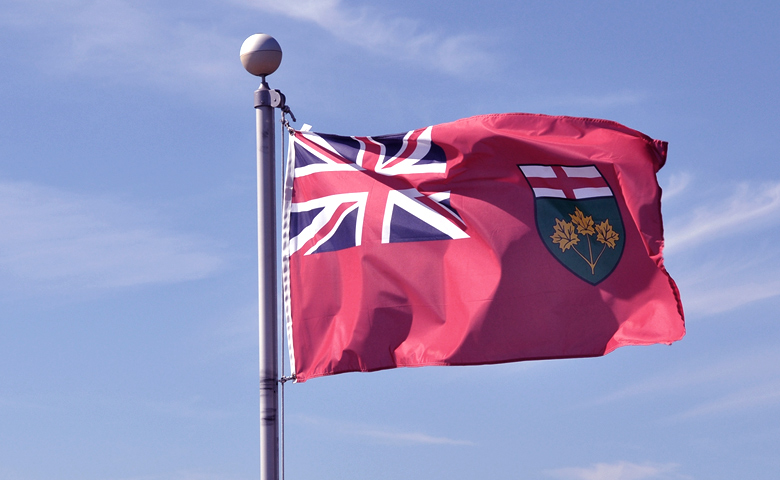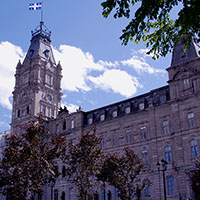Manufacturing enterprises are the pillars of the Quebec economy. Over the years, several tax measures have been announced to encourage investments in this sector.
The following is a summary of the principal tax measures that deal more specifically with manufacturing enterprises in 2019.
Read our On-line Tax Strategies bulletin below.
You could also like to read
Next article
The Grant Thornton International IFRS team has published Insights into IFRS 16 – Lease payments.
The bulletin Insights into IFRS 16 – Lease Payments provides guidance on how to determine which lease payments to include in the measurement of the lease liability when accounting for a lease under IFRS 16.
The issue
IFRS 16 requires a lessee to measure the lease liability at the present value of the lease payments that are not paid at that date. This liability includes both fixed lease payments (including in-substance fixed payments) and variable lease payments that depend on an index or rate, and it represents the starting point for the measurement of the related right-of-use asset.
Deciding which payments need to be recognized in the measurement of the liability and how changes in those payments are recognized often involves considerable judgment. The bulletin Insights into IFRS 16 – Lease payments aims to help you with this judgment.
Download the bulletin below.
Next article
On March 19, 2019, Finance Minister Ernie L. Steeves tabled New Brunswick’s 2019-20 budget. The budget projects a $23.1 million surplus in 2019-20 and sees the province’s net debt decrease for the first time in 13 years.
The net debt is currently estimated at $14.1 billion, and is expected to decline by $49 million in 2019-20.
The estimates provided in Budget 2019 show that the province projects a surplus of $4.5 million for the 2018-19 fiscal year, rather than the $188.7 million deficit projected for the same fiscal year in the previous budget.
Tax measures
No changes to the corporate tax rates, or the $500,000 small business limit, are proposed.
Rejecting federal measures on small business limit
The budget indicates that the government will maintain the current rules for the New Brunswick small business corporate income tax rate and will not parallel the federal measures around passive income, which phase out access to the small business tax rate. This makes New Brunswick the second province to deviate from the federal government on these rules, after Ontario.
The rejection of this federal rule at the provincial level means that the small business limit in New Brunswick ($500,000) will not be reduced by any passive investment income earned in the corporation. Therefore, if passive income is high enough to fully eliminate the small business deduction at the federal level, it would result in a 15% federal corporate rate; however, the provincial tax rate would be unaffected and would remain at 2.5%. Overall, this would result in a combined tax rate of 17.5%.
The province has announced, as part of this budget, that it will be paralleling the federal capital cost allowance incentives that were introduced as part of the Fall Economic Statement.
These changes will allow businesses to increase the capital cost allowance deduction that is available in the year of purchase for certain capital expenditures, thereby decreasing taxes payable.
Personal income tax rates
New Brunswick’s personal tax brackets are indexed to inflation on an annual basis. Budget 2019 proposes no further changes to the personal tax brackets and rates.
Harmonized sales tax
Budget 2019 proposes no changes to the current 15% HST rate, which is composed of a federal component of 5% and a provincial component of 10%.
Consult our document below for more details.
Next article
2019-2020 Budget: More money for our businesses, but more work needs to be done
According to Finance Minister Éric Girard, the aim of the first CAQ government budget is to invest now to control our future. According to the master of the public purse, the budget was prepared “based on your priorities”.
Thanks to the current fiscal surplus estimated at $2.5B at the end of 2018-2019, the Government is projecting a balanced budget this year as well as for the next four years without need to use the stabilization reserve.
A number of the measures announced are designed to put more money in the pockets of Quebeckers, including the gradual elimination of the childcare contribution and a standardized school tax. Adding to the measures announced in the 2018 fall update (like the new Family Allowance and the new tax credit for seniors) which will give $360M back to taxpayers, the Government will now be putting nearly $1B back in the pockets of Quebeckers starting in 2019-2020.
A boost for businesses but not enough to improve tax competitiveness
Labour
To create a more competitive and innovative Quebec, education is the cornerstone. The 5.1% increase in the budget for education and higher education in 2019-2020 would mean an additional $2.4B in resources for education and higher education over five years.
Since the labour shortage is a major issue over the short term, it would have been nice to see measures to speed up worker recruitment. However, we should highlight the announcements aimed at better integrating immigrants into the workforce. With an additional $146M per year over five years, for a total of $730M, the Government wants to implement a new personalized pathway to support immigrants in their integration into Quebec society, including the labour market.
The announcements encouraging workers to stay in the labour market are interesting, including the expansion of the credit for experienced workers and the lowering of the age of eligibility for this tax credit to 60. The reduction in payroll expenses related to wages paid to workers aged 60 and over is also worth mentioning. This reduction would benefit 34,000 Quebec SMEs.
Also, the injection of $75M over six years to support entrepreneurship and encourage the next generation of young entrepreneurs is an interesting announcement to stimulate job creation and entrepreneurial labour, although the amounts could be larger.
Capital and Financing
To stimulate private investment, the government also decided to increase the share capital of Investissement Québec from $4B to $5B in order to be able to carry out more interventions using its own funds. Another measure to be highlighted is the creation of an envelope of up to $1B to support the development of strategic businesses in Quebec and to protect the presence of head offices in Quebec. Given that new technologies are key to productivity and innovation for businesses, the announcement of $329M over six years to accelerate the development and adoption of artificial intelligence by businesses is very good news.
Corporate Taxation
There are no new corporate tax cuts in this budget. In a very competitive business environment, particularly with our neighbours to the south, we have to recognize that this budget gives our businesses more means, but there is still work to be done. The lost tax advantage of Quebec’s economic engines over the Americans must be restored.
For more information on the tax measures announced in the 2019-2020 budget, please consult the document below.






